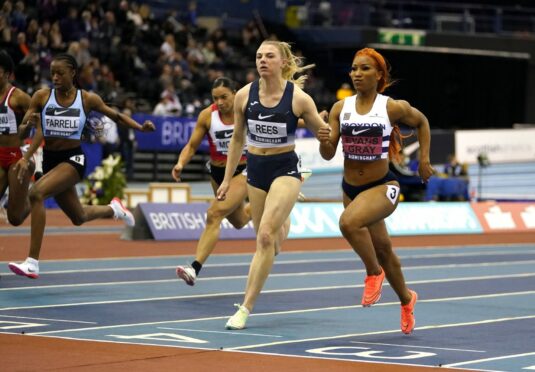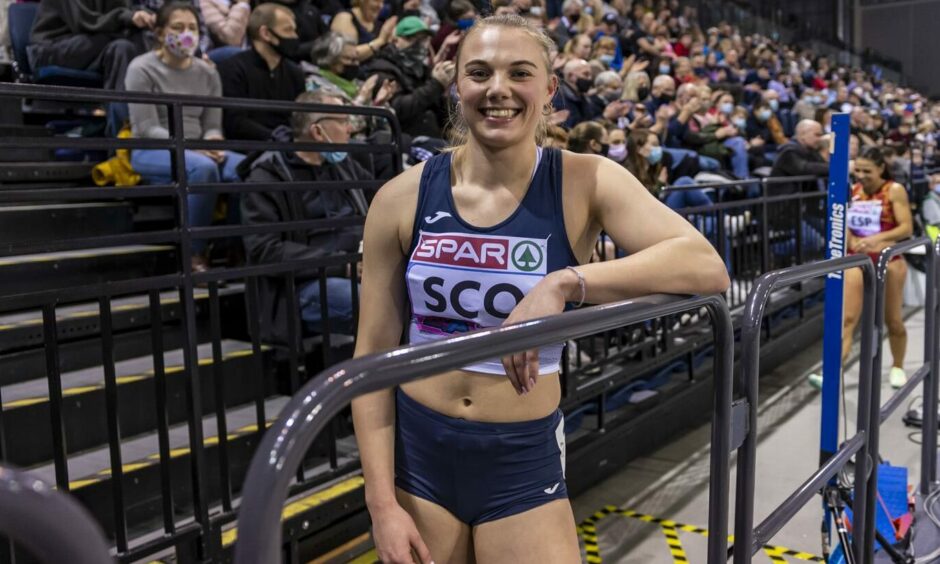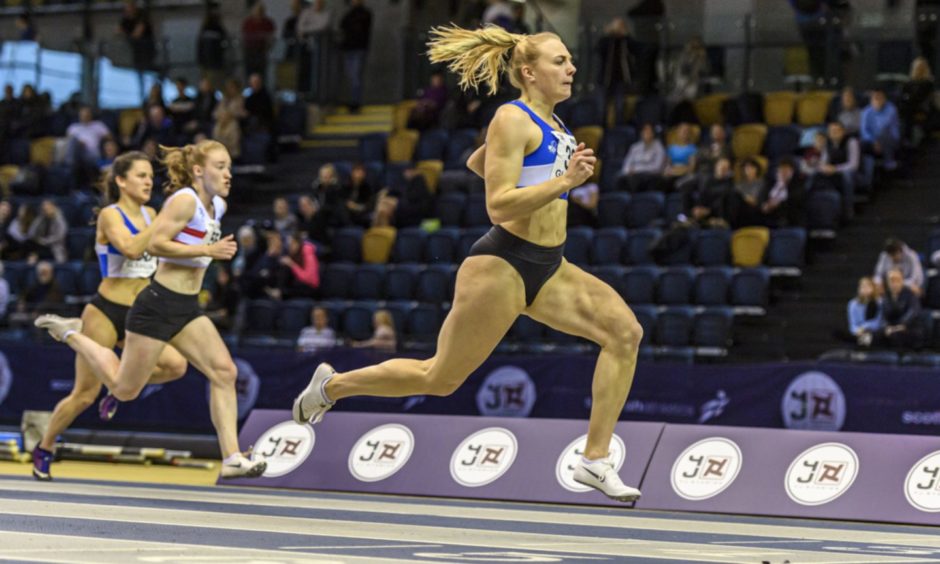In the early days of her sporting career, Alisha Rees admits the success came easy.
The Torphins-born athlete showed such aptitude from a young age she regularly raced – and surpassed – sprinters who were often several years her senior.
Guided through the age-groups by Banchory Stonehaven Athletics Club sprints coach Willy Russell, it seemed as if Rees won all that could be won, collecting national medals as easily as a philatelist collects postage stamps.
But the success in her early years, which saw Rees win the Scottish senior 100m title at the age of 16, took on a rather different complexion as she progressed to the senior ranks.
The national and international call-ups, once a significant boon, soon became a major crutch as the pressure – and the medals – started to weigh heavily on the Scot’s shoulders.
One could even argue that the success Rees enjoyed as a teenager, and the pressure which came with it, has made her recent selection for the Commonwealth Games in Birmingham all the more impressive.
Having already broken the Scottish 100m record twice this season, Rees has eyes on lowering her lifetime best of 11.30s yet further when she makes her debut at a major championship next month.
Having graduated with a first in sociology from Loughborough University, Rees is still based in the East Midlands with her coach, Leon Baptiste.
But there have been plenty of battles Rees has had to fight along the way, not only to reach an elite level of the sport, but equally to reach a level of self-worth which, she explains, had been missing for some time.
She said: “As an athlete, you put a lot of pressure on yourself and I definitely put a lot of pressure on myself to run well at every competition.
“When you do so well as a junior, you expect yourself to do well all the time, but sometimes it just doesn’t go your way and I’ve said in interviews that I can get myself into a bit of a rut about athletics and think: ‘this sport’s rubbish.’
Name: Alisha Rees
D.O.B: 16/4/99
Home town: Torphins
Previous CG experience: none
Event(s): 100m, 4x100m
“When I get into a rut about athletics, that’s when my self-belief goes down. If you don’t enjoy turning up to training then you’re not going to compete well.
“But I think all athletes suffer from it, and it’s just something you’ve got to learn how to deal with. (You have to) find the coping mechanisms to get out of that rut and back to enjoying training.”
Had someone mentioned “rut” and “coping mechanism” to Rees while she was a junior athlete, it is quite likely she would have had no idea how to relate the terms to athletics.
In the early 2010s, when Rees was starting the sport, preparation for training entailed packing a water bottle and tying a pair of shoelaces.
Despite her ability at age-group level, Rees explains she rarely, if ever, thought too closely about what success in athletics meant to her.
“The first memory I have of Banchory Stonehaven Athletics Club was going with my mum to pick up my brothers.
“I would wait outside the school hall and one of the coaches said: ‘Alisha, do you just want to join in on this one?’. I remember I was just wearing some khaki cargo pants and I think we were just running round the hall seeing how many times we can run around.
“I knew I was pretty quick, because I would win sports days all the time and I would beat the boys. I knew I was good at sprinting, but at that age I never thought: ‘where is this going to go’ – I was just enjoying it and taking it one session at a time.”
Exposure to local competitions, too, saw Rees continue to progress – but even when she found herself being driven to Perth, Dundee, and Inverness seemingly every weekend, clubmates and team spirit played a huge role in wedding her to the sport at an age when many teenagers fall by the wayside.
“I remember doing Women’s Leagues and I always remember going to Edinburgh for one competition – I’d played football the day before, I’d gone to a sleepover and I was absolutely knackered so I didn’t run that well.
“But I thought that’s just what you did. I was happy to go there, run, see your friends – it was just a good time.
“I would do literally every event possible, but it would be funny because you would throw a shot put and just go back into your line and chat for 10 minutes until someone told you it was your go again. It is really fun to look back and see how far I’ve come. They were really good times for me in the sport.”
Acclimatising to Loughborough, where Rees began her university studies in 2017, proved to be one of the biggest challenges following her relatively straightforward career while she was based in Aberdeenshire.
During summer months, Rees had been used to training on a former lavender field, Banchory’s Alexander Park, before heading to Banchory Primary’s school hall during the winter.
But after moving to Loughborough’s world class facilities – where walking past an Olympic medallist or a world champion in the corridor is the norm – Rees started to feel a kind of pressure she hadn’t felt before.
“It was a huge, huge change I had to make and it was really difficult. The training was a lot harder.
“In Banchory, I would turn up at 6.30pm in the evening and I would leave at 8pm.
“In Loughborough, I’m at the track at 9am and I don’t leave until after midday sometimes.
“It was a really big adjustment to go from being a club athlete to being borderline professional.”
Adapting to her new set-up took years, and the success was by no means instant.
Despite managing to compete each season, academic pressures and injuries saw her performances falter.
Perseverance has certainly played its part in Rees’s stellar 2022 season, but support from training partners, her coach, and a sports psychologist has been crucial, too, in helping her find meaning in athletics.
Emboldened by a Scottish record set as recently as Sunday, Rees is now ready to attack the Birmingham Commonwealth Games with the same relish and vigour she showed when gliding round Alexander Park athletics track as a carefree teenager.
“I’ve just got to prepare like I would for any competition – just try and not do too many things differently and stick to what you know,” she said. “I’ll remind myself that I’ve got here, I deserve to be here, and, because I deserve to be here, I’m going to perform like I should.
“Obviously it’s massive, but I’ll just think of it as another race.”


